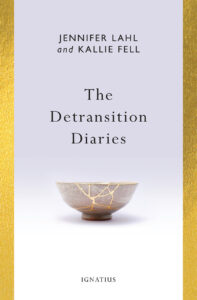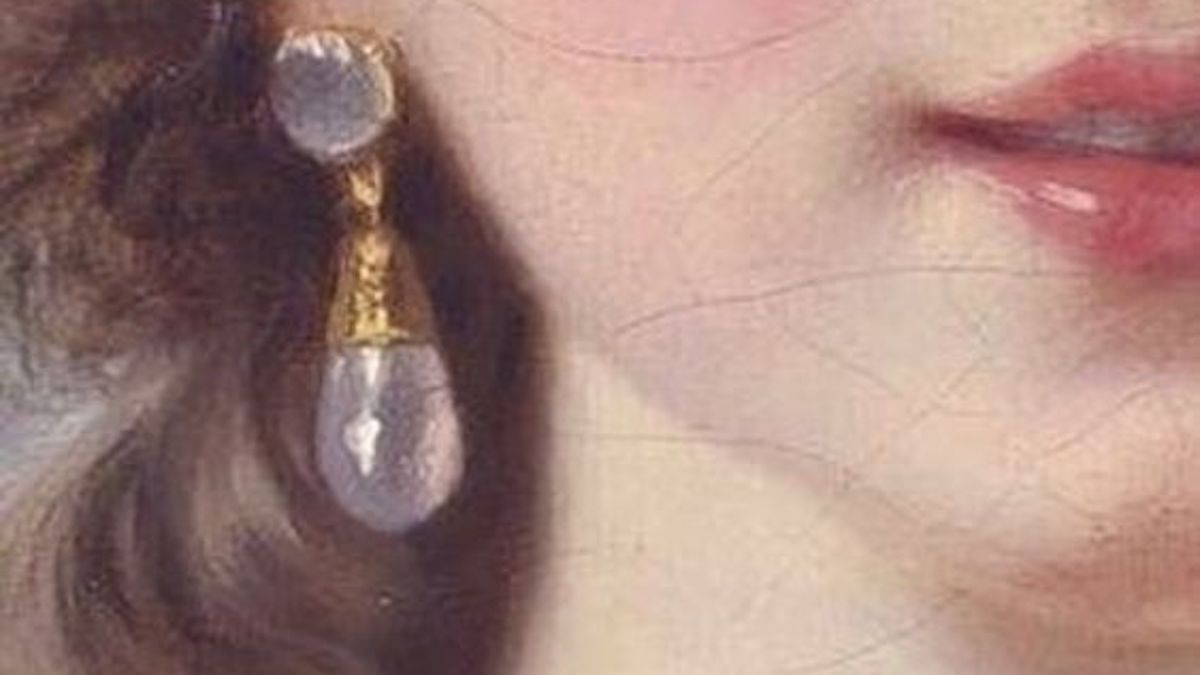Two primary narratives seem to dominate contemporary visions of womanhood: fawning dependence and radical independence. In other words, a modern woman can be a codependent “trad-wife” or an abrasive “girl-boss.” When faced with such unattractive options, many modern women choose the latter. Prior ages have encouraged women to choose something closer to the first, often idealizing a delicate caricature of the “weaker sex.”
Thankfully, a growing number of women are rejecting this false dichotomy, seeking the virtuous mean between the two extremes. But where does this mean lie?
The work of Edith Stein presents a paradoxical yet insightful response to this complex question. A philosopher and academic who lived in the early twentieth century, Edith Stein was no stranger to workplace challenges or unjust gender stereotypes. Born to a German family of the Jewish faith, Edith Stein’s father passed away when she was only two years old. Her mother raised her and her ten siblings, while also running the family’s large timber business. Stein was an exceptional student and worked closely with preeminent academics in her field. Despite her obvious talent and intellect, she was initially not given a professorship because she was a woman. After reading the autobiography of Saint Teresa of Avila, Stein converted to Catholicism at age 31 and joined the Carmelite order at the age of 42, continuing her academic work all the while. In 1942, she was arrested and taken to Auschwitz, where she died in a gas chamber.
Edith Stein displayed not only great philosophical acuity but also professional prowess, at a time when this was unusual for woman. Given the discrimination she faced, it is somewhat surprising that, in describing the core desire of women, she emphasizes the desire for surrender and self-gift:
The deepest longing in a woman’s heart is to give herself lovingly, to belong to another, and to possess the other completely. But this surrender becomes a perverted self-abandon and a form of slavery when it is given to another and not to God; at the same time it is an unjustified demand which no human being can fulfill.
Stein’s bold claim runs counter to the dual narratives that our culture offers women. She rightly identifies the competing desires many women feel: both to give of oneself and surrender to love and to maintain a sense of dignity and independent personhood.
The fundamental desire for love and the call to self-gift is not limited to women, of course, nor is the tendency to try to satiate this desire through disordered means. However, Stein recognizes in this passage that seeking to satisfy this longing through a disordered abandon to another human person is a temptation women are more likely to experience. As she explains, by properly directing this desire for surrender to God, women may satisfy their yearning to abandon themselves to another without compromising their distinct personalities and vocations.
In our post-Christian era, the concept of “surrendering to God” is foreign to many. To understand what Stein means by it, it’s helpful to consider a concrete example of what such surrender looks like and to contrast it with a (more familiar) life lived in the pursuit of self-fulfillment.
The protagonists of Tolstoy’s classic novel Anna Karenina present striking and useful examples of both choices. As she vainly grasps at self-realization, Anna Karenina exhibits inordinate dependence on her lover, in spite of her “independent” choice to defy convention by leaving her husband and son in pursuit of love. Her tragic end illustrates the dangers of seeking to satiate one’s passions as a primary end and source of happiness. In stark contrast, Kitty learns to find identity and purpose in her faith, which gives her the strength to bear life’s struggles with resilience and equanimity. These two characters provide insight into how women’s decisions and outlook impact the trajectory of their lives.
Anna
At the outset of Anna Karenina, Anna is described as having a face that is “particularly caressing and soft,” which displays “suppressed eagerness.” The reader is introduced to Anna as she travels to see her brother’s family. Anna speaks to her travel companion about her eight-year-old son, from whom she is apart for the first time. As speaks, she “shroud[s] the light in her eyes, but it [shines] against her will in a faintly perceptible smile.”
Anna’s brother’s family is in crisis, and she is there to diffuse the situation, which the narrator tells us is one of her particular skills. When she arrives at her brother’s home, Anna’s sister-in-law Dolly comments that Anna is “radiant with health and happiness.” Anna is married to “one of the most important personages in Petersburg,” a man who is somewhat stiff, highly image-focused, and ambitious.
During her visit, Anna catches the eye of Vronsky, a suitor of Dolly’s sister Kitty. Vronsky had ostensibly been on the brink of proposing to Kitty. Yet, upon meeting Anna, Vronsky loses interest in Kitty and immediately pursues Anna with intensity. Over the course of the novel, Anna increasingly loses her personality and becomes intensely dependent on Vronsky’s attention and affirmation, eventually leaving her husband and son to be with him. Her fixation leaves Vronsky feeling frustrated and trapped, though never discernably less committed. Her interests become solely avenues for her to garner his approval, which he never seems to give her on a satisfactory level. As her attempts at happiness leave her feeling progressively emptier, Anna finally succumbs to suicidal despair.
Kitty
In stark contrast to Anna’s trajectory, Tolstoy juxtaposes the parallel journey of Kitty. Having been abandoned by Vronsky for Anna, Kitty is left feeling overwhelmed with shame that she has been publicly rejected by a man for whom she had perceptibly manifested feelings. In order to raise her spirits and provide needed distraction, Kitty’s parents take her to a German village where she meets Varenka, a girl her own age.
Kitty is fascinated by Varenka’s kindness and serenity despite her circumstances, which are much more challenging than Kitty’s. One day, Kitty shares with Varenka her embarrassment at Vronsky’s rejection. She asks Varenka earnestly what is “of such importance that gives [her] such tranquility.” They are interrupted, and Varenka cannot answer. Yet, by observing Varenka over the days and weeks that follow, Kitty determines that “one has but to forget oneself and love others, and one will be calm, happy, and noble. And that was what Kitty longed to be… she gave herself up with her whole soul to the new life that was opening to her.”
Kitty’s surrender to something outside of herself results in a “serious spiritual change,” illustrated through the growing strength of character that she displays as the book progresses. In surrendering to God rather than another person, Kitty has an unwavering sense of purpose and worth. Her sense of calling to live this way gives her a steadiness that was previously absent. It cultivates in her both gravity and levity, as her eternal perspective convicts her of the immeasurable worth of others and the relative unimportance of minor annoyances and infractions.
Kitty develops strength through her adherence to her newfound beliefs, which are highlighted in the contrast between her romantic relationship with Konstantin Levin and that of Anna and Vronsky. It is not that Kitty and Levin’s relationship is without small jealousies and misunderstandings, but that, in contrast to Anna, Kitty has a sense of purpose that includes but is not limited to her relationship to Levin. This allows her to forgive and rise above minor offenses and imperfections in him.
Comparing Kitty and Anna
As the story unfolds, Anna’s personality erodes. In departing from her principles, she cuts herself off from an internal, stable source of value and meaning. This denunciation of her values destroys her ability to be an equal partner: she has no real “self” outside of her lover’s regard for and attention to her. She has shunned her morals and sense of calling, and as a result, her focus and identity are turned inward. She no longer feels a sense of duty toward her son, though she does experience guilt for leaving him, and she cannot look at the daughter she had with Vronsky. The radiant and joyful Anna who visited her brother’s family in their time of need now has no eyes for others. She looks at others only to see if they are affirming her.
Anna’s surrender is a poignant manifestation of the “perverted self-abandon and a form of slavery” that results “when it is given to another and not to God.” Further, it illustrates how the pressure this surrender puts on Vronsky is “unjustified demand which no human being can fulfill.” In contrast, by surrendering her life to God through love and service to others, Kitty is able to give herself generously in self-gift to her husband, without the urgency to control or change him.
A paragon of the woman striving for happiness at any cost, Anna Karenina embodies both the codependent mistress and the self-determined, culture-defying woman. Anna’s fate underscores what is lacking in the contemporary approach to women’s liberation. In contrast, Kitty, the foil to Anna, experiences normal human struggles but learns to find meaning and purpose outside of herself through her faith. In her surrender to the divine, she finds strength and purpose, which enable her to give herself lovingly to others. The disparity between Anna and Kitty’s stories forcefully demonstrate how the human heart desires and is made for the unconditional love that cannot be sustained by a merely human relationship. Every person longs to be fully known and fully loved. When Kitty becomes assured that she is known and loved in this way, it unlocks the resilience and tenderness of her soul, allowing her to use her talents without fear or defensiveness. From this foundation of true freedom, she is then able to forge a loving, self-giving marriage with Levin.
The experiences of Kitty and Anna resonate with women today, who continue to desire freedom and happiness but struggle to know where to find it. By taking the advice of Edith Stein and surrendering first to the call to love and serve God and others, they can find freedom and strength—a strength profound enough to allow them to give of themselves while not being a slave to the manner in which they are received. It is in this surrender that the deep and seemingly paradoxical desire for self-gift and freedom can be satisfied.



